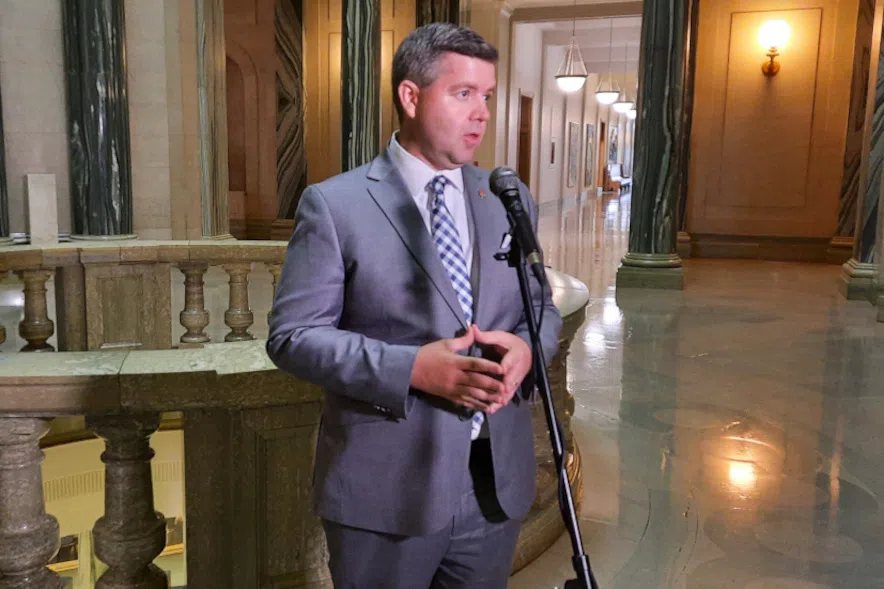Despite changes made within the final Clean Energy Regulations (CER) published by the federal government this week, the Government of Saskatchewan continued to dismiss the regulations themselves and the authority behind them.
The provincial government has been railing against the iterations of the draft regulations for months, saying that completely shifting how SaskPower generated electricity by 2035 was simply not possible.
SaskPower has said electricity rates would need to nearly double — if even possible — and the provincial government’s economic tribunal said complying would cost the province more than $7 billion.
Among the changes announced this week are moving the goal of a net zero power grid from 2035 to 2050.
However, Minister Responsible for SaskPower Jeremy Harrison, said the change is just cosmetic, and the natural gas requirement date is still 2035.
“The issue was the fact that it was completely unobtainable and unachievable within that time frame,” Harrison said.
In announcing the final regulations, Energy Minister Jonathan Wilkinson said the new regulations have more flexibility to ensure they’re something that will actually work.
“At the end of the day we want Saskatchewan to succeed. We want Nova Scotia to succeed. We want New Brunswick and Alberta to succeed. But we also want to achieve a net zero grid by 2050,” Wilkinson said.
Some of the changes include changing to an actual emissions limit for power-producing units and introducing a credit system that can be pooled. They also allow emissions from natural gas units run in emergencies, like extreme weather, to not count under the rules.
Harrison scoffed at some of the changes.
“Do they actually expect that we’re going to keep 300 MW natural gas facilities in operation just for emergencies? That we’re going to staff these facilities and keep them operational but never run them except when there’s an emergency? It’s outrageous, it makes no sense,” he said.
He didn’t consider the changes, made in part from concerns expressed by Saskatchewan, Alberta and some electricity producers, as the federal government trying to play ball – Harrison said there was no good faith attempt to work with the province on the regulations.
The province will stick to its guns, Harrison said it will not be adhering to the regulations.
“We’re going to be proceeding as though these regulations have no force and effect, because they don’t,” he said.
Harrison and the provincial government maintain the federal government has no jurisdiction when it comes to power generation, that it’s purely within the provincial realm.
“It couldn’t be any more clear in the Constitution Act that electricity generation is entirely within the purview of provincial governments,” Harrison said.
He said it was added in 1982 leading up to the repatriation of the Charter.
“That was not added lightly. And that went through the entire amending process, it was added because those two premiers (Allan Blakeney, Peter Lougheed) believed that the federal government would inappropriately try to insert themselves in regulating electricity generation in provinces,” Harrison said.
Going forward, SaskPower won’t be focusing on the federal rules, Harrison said it will be focusing on two things.
“Affordability and reliability – that is going to be what our focus is for our people here in this province, they need to know that when they flip the light switch on, it’s going to work,” he explained.
The Government of Saskatchewan had previously said it would work toward a net zero electricity grid by 2050.
– with files from The Canadian Press







